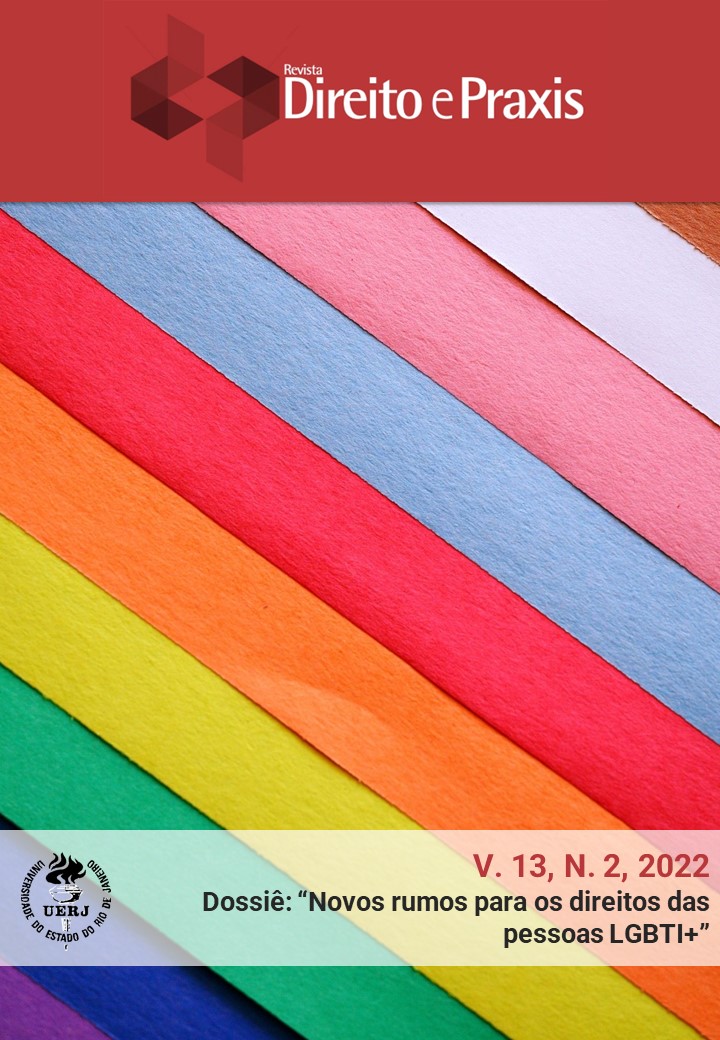A estratégia do neoconservadorismo revelada em suas intervenções como amici curiae no STF: da autoridade moral religiosa à luta contra a “doutrinação” LGBTQIA+ / Neoconservatism’s strategy revealed through its interventions as amici curiae in the Brazilian Supreme Court: from religious moral authority to the fight against LGBTQIA+ “indoctrination”
Keywords:
Neoconservadorismo, Autoridade Moral, Religião, Direitos LGBTQIA / Neoconservatism, Moral Authority, Religion, LGBTQIA Rights.Abstract
DOI: 10.1590/2179-8966/2022/66755
Resumo
O presente artigo sugere uma investigação da estratégia neoconservadora que ameaça direitos LGBTQIA+ já conquistados ou que se pretende conquistar. Para tanto, além de investigações comparativas acerca dos conceitos chave deste novo conservadorismo emergente, cujo marco são as descrições propostas por Melinda Cooper e Marina Lacerda, pretende-se uma análise empírica de intervenções selecionadas desses grupos como amici curiae em ações do STF, partindo do método universalista descrito por Mark Tushnet e Ran Hirschl. Tal inquirição é capaz de revelar as estratégias específicas da luta contra o pluralismo e contra a liberdade das pessoas LGBTQIA+, que posicionam a diferença como inimiga e que vocalizam a autoridade moral como caminho para a erradicação do “mal”. Ao fim, a proposta ora avançada se revela uma importante ferramenta para compreensão dos desafios hoje evidentes, buscando que tal consciência revigore a luta pela construção de uma democracia verdadeiramente plural.
Palavras-chave: Neoconservadorismo; Autoridade Moral; Religião; Direitos LGBTQIA+.
Abstract
The present article suggests investigating the neoconservative strategy which threatens LGBTQIA+ already conquered or intended to. For the endeavor, beyond the comparative investigation of the new conservatism’s key concepts, based on Melinda Cooper’s and Marina Lacerda’s descriptions, it undertakes an empiric analysis of selected interventions from these groups as amici curiae before the Brazilian Supreme Court, with the outset of the universalist method described by Mark Tushnet and Ran Hirschl. Through the inquiry, it is possible to bring to the fore the specific strategies used to fight against pluralism and individual freedom of LGBTQIA+ people, which position difference as an enemy and vocalize moral authority as a way to eradicate “evil”. In the end, the proposal here fostered reveals itself as an important tool for the comprehension of current challenges, aiming that such conscience can reinvigorate the fight for the construction of a truly pluralistic democracy.
Keywords: Neoconservatism; Moral Authority; Religion; LGBTQIA+ Rights.
Downloads
Downloads
Published
How to Cite
Issue
Section
License
The authors the sole responsibility for their texts.
It is allowed the total or partial reproduction of the articles of the Journal Law and Praxis, if the author is mentioned.
This work is licensed under a Creative Commons Attribution-Noncommercial-Share Alike 4.0 Unported License.
This license allows you to copy and redistribute the material in any medium or format for any purpose, even commercial, provided the original authorship is cited.
This work is licensed under a Creative Commons Attribution 4.0 International License.



